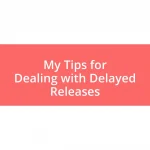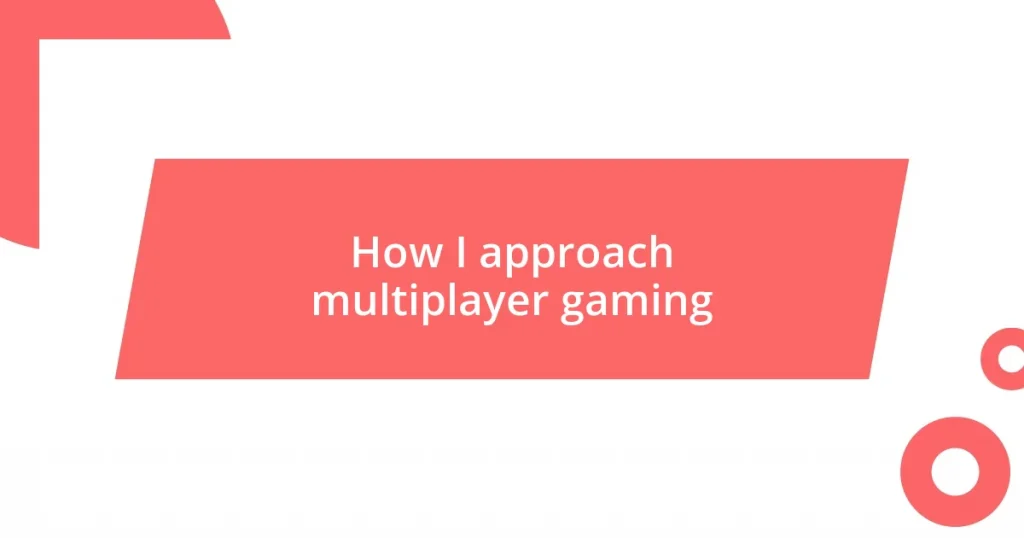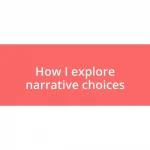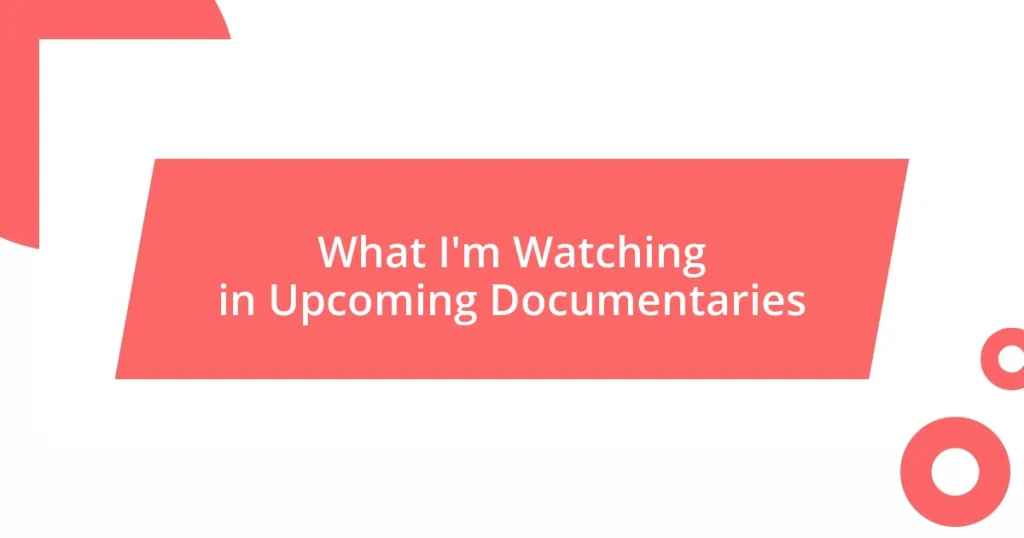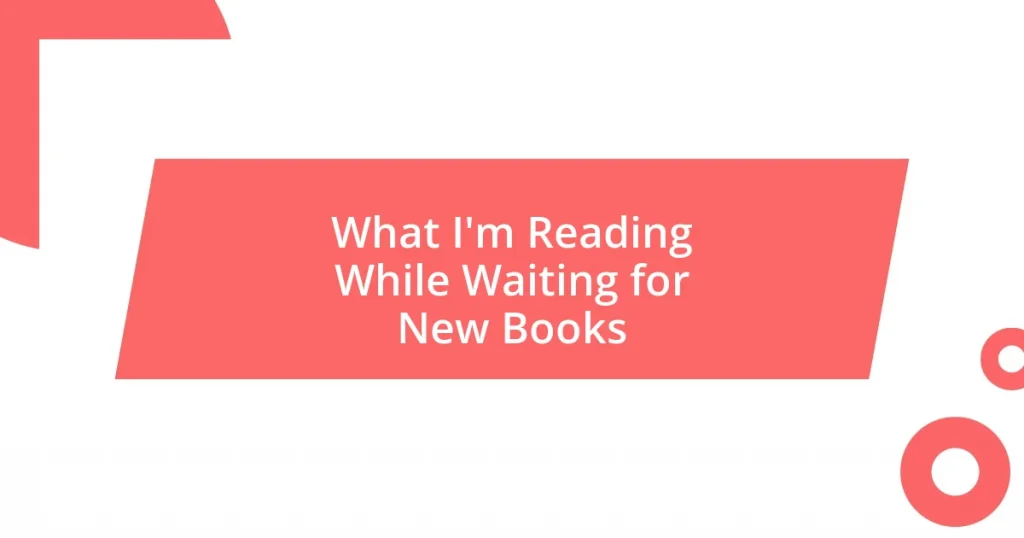Key takeaways:
- The dynamics of multiplayer gaming emphasize collaboration and competition, where individual actions significantly impact collective outcomes.
- Effective communication and strategic role assignment enhance teamwork, leading to improved performance and deeper relationships among players.
- Reflecting on gameplay fosters growth, helping players analyze both successes and mistakes to refine their skills and deepen their understanding of the game.
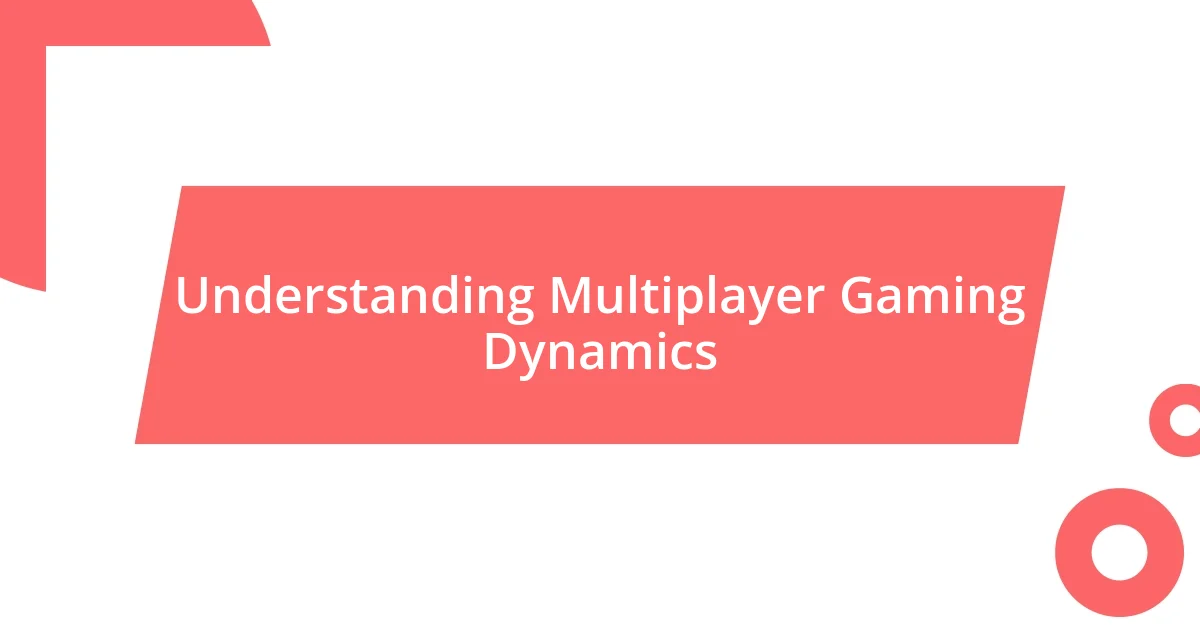
Understanding Multiplayer Gaming Dynamics
When I first ventured into multiplayer gaming, I was struck by how collaboration and competition coexisted. Imagine teaming up with friends to tackle a raid in an MMORPG, each of us relying on our unique roles to overcome challenging quests. It’s like being part of a dynamic puzzle where every piece is crucial, and without clear communication, that puzzle can quickly unravel.
The emotional highs and lows of multiplayer gaming can be intense. I vividly remember a late-night session where my team and I narrowly clinched victory against what felt like impossible odds. The thrill of victory in those moments creates bonds that go beyond the game, making it a shared experience that’s both exhilarating and deeply rewarding.
Understanding the dynamics of multiplayer gaming is all about recognizing how individual actions contribute to collective outcomes. Have you ever considered how a single player’s decision can change the course of a game? I’ve seen it firsthand—one strategic move can turn the tide, showcasing the complex interplay of skills, strategy, and teamwork that makes multiplayer gaming so engaging and unpredictable.
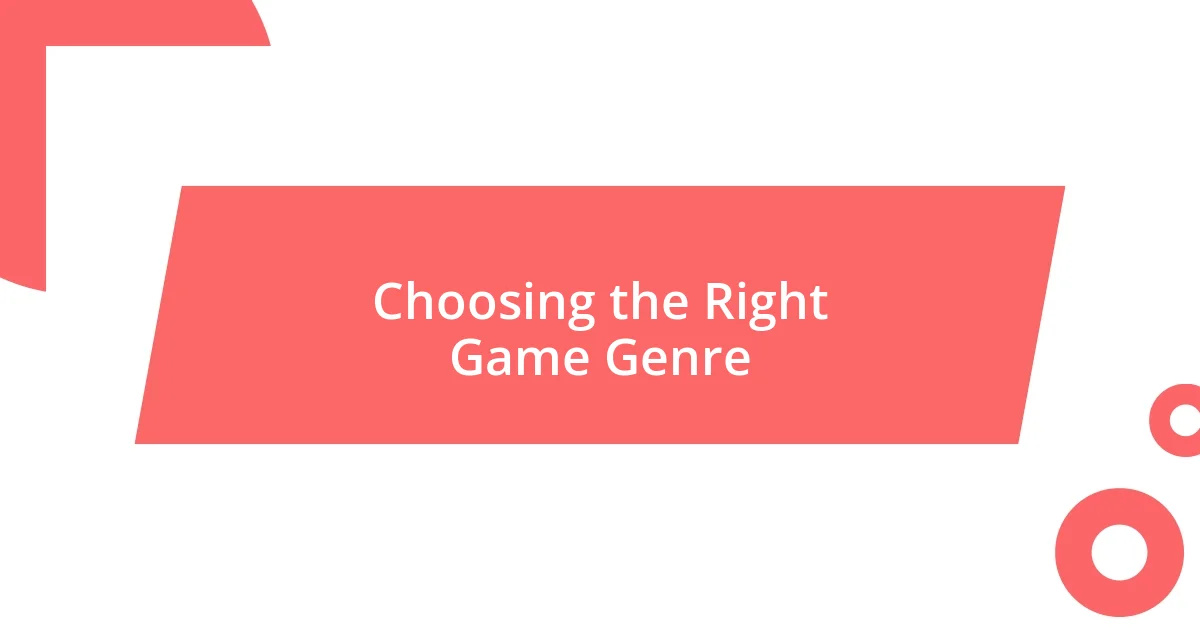
Choosing the Right Game Genre
Choosing the right game genre is pivotal in shaping your multiplayer experience. Personally, I’ve found that understanding my gaming preferences often leads me to genres that provide the most enjoyment. For example, I used to play a lot of battle royale games, drawn in by the adrenaline rush, but over time, I discovered I enjoyed the strategic depth of real-time strategy games much more.
Each genre offers a unique flavor of interaction and competition. In my experience, cooperative genres like MMORPGs foster a sense of fellowship that’s hard to match. I remember joining a guild in one such game, where we spent countless hours not just slaying monsters but building friendships. It wasn’t just about the gameplay; it was the shared laughter and teamwork that transformed gaming into a social experience.
On the flip side, competitive genres like first-person shooters can cultivate a different kind of excitement. The thrill of leaping into a match, striving to outsmart opponents, fills me with exhilaration. Every match feels like a mini-tournament, pushing me to improve while learning from both wins and losses. The choice of genre ultimately shapes not just how we play, but how we connect with others in this vibrant gaming landscape.
| Genre | Key Experiences |
|---|---|
| MMORPG | Teamwork and friendship-building |
| Battle Royale | Adrenaline rush and individual skill |
| First-Person Shooter | Strategic competition and skill improvement |
| Real-Time Strategy | Planning and tactical collaboration |
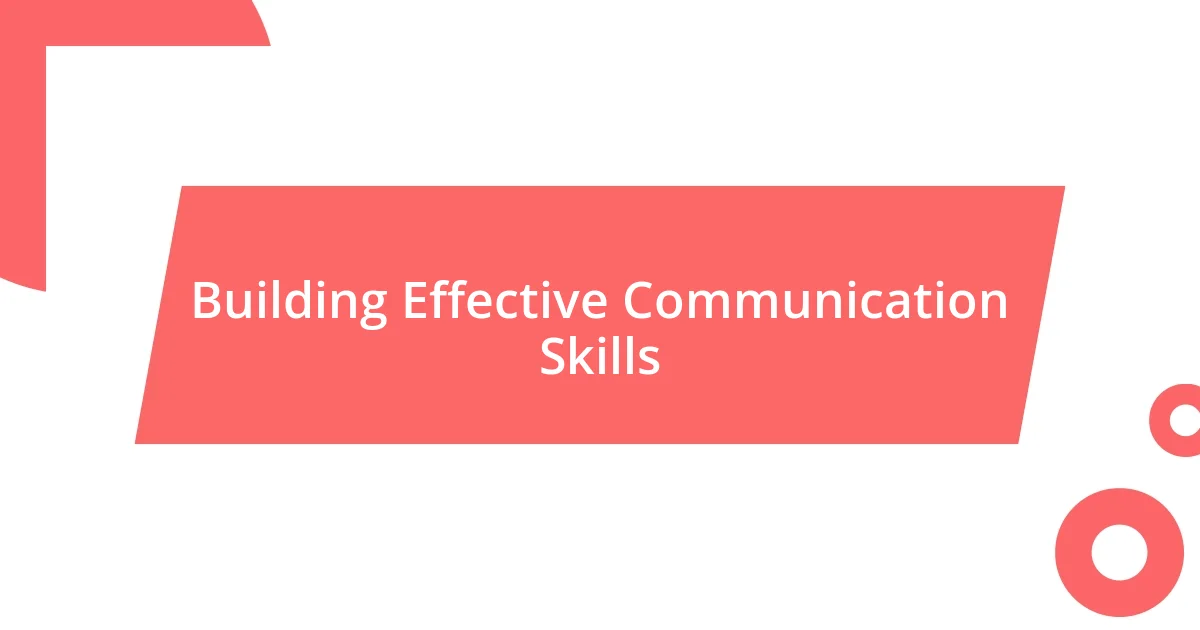
Building Effective Communication Skills
Building effective communication skills in multiplayer gaming is more crucial than many players realize. I can’t stress enough how much it enhances the overall experience. For instance, I remember a specific raid where our team was struggling to progress. It wasn’t until I started calling out strategies and actively encouraging others that we finally hit our stride. It’s fascinating how simply sharing ideas can turn frustration into triumph.
Here are some strategies I’ve found helpful for improving communication skills in multiplayer games:
- Be Clear and Concise: Use simple language to convey strategies. When the pressure is on, brevity is key.
- Active Listening: Pay attention to what others are saying. I always find that acknowledging team members’ thoughts fosters a strong team dynamic.
- Positive Reinforcement: Celebrate achievements, no matter how small. I’ve noticed that a simple “great job!” can boost team morale significantly.
- Non-Verbal Communication: Use in-game signals or emotes. Sometimes, actions speak louder than words, especially in fast-paced scenarios.
- Adapt Communication Style: Be flexible with how you talk to different players. Recognizing when someone prefers a more direct approach versus a collaborative one has helped me connect better with my teammates.
By honing these skills, I’ve experienced firsthand how stronger communication leads not only to better gameplay but also to deeper relationships with my fellow gamers. It’s all about creating an atmosphere where everyone feels empowered to contribute, which can be incredibly rewarding.
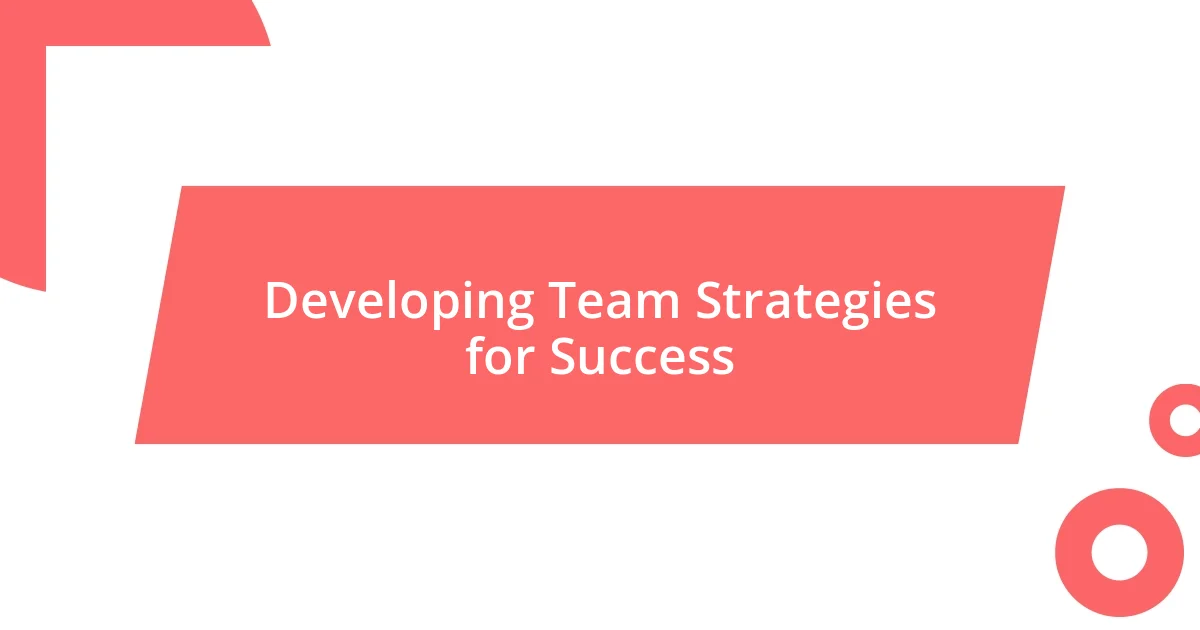
Developing Team Strategies for Success
Developing effective team strategies in multiplayer gaming is an art I’ve come to appreciate over time. I remember a particular tournament where our success hinged on careful planning. We spent hours discussing roles and strategies, which felt like being part of a thrilling chess match. Wouldn’t you agree that having a clear plan can transform chaos into a masterpiece?
One key strategy I’ve found valuable is leveraging each player’s strengths. For instance, in one game, we had a teammate who excelled at defense while I thrived in offense. By assigning roles based on individual skills, we balanced our team’s dynamics beautifully. It was astonishing to see how much more effective we became simply by playing to our strengths—like a well-rehearsed orchestra hitting all the right notes.
Additionally, adapting our strategies mid-game has proven essential. In a heated match, we once found ourselves overwhelmed, and instead of panicking, we recalibrated on the fly. This moment of clarity led to a comeback that still gives me chills. Can’t you feel that rush of excitement when a last-minute adjustment pays off? It’s in these moments that I realize teamwork isn’t just about shared goals; it’s about navigating challenges together, which often strengthens our bonds as players.
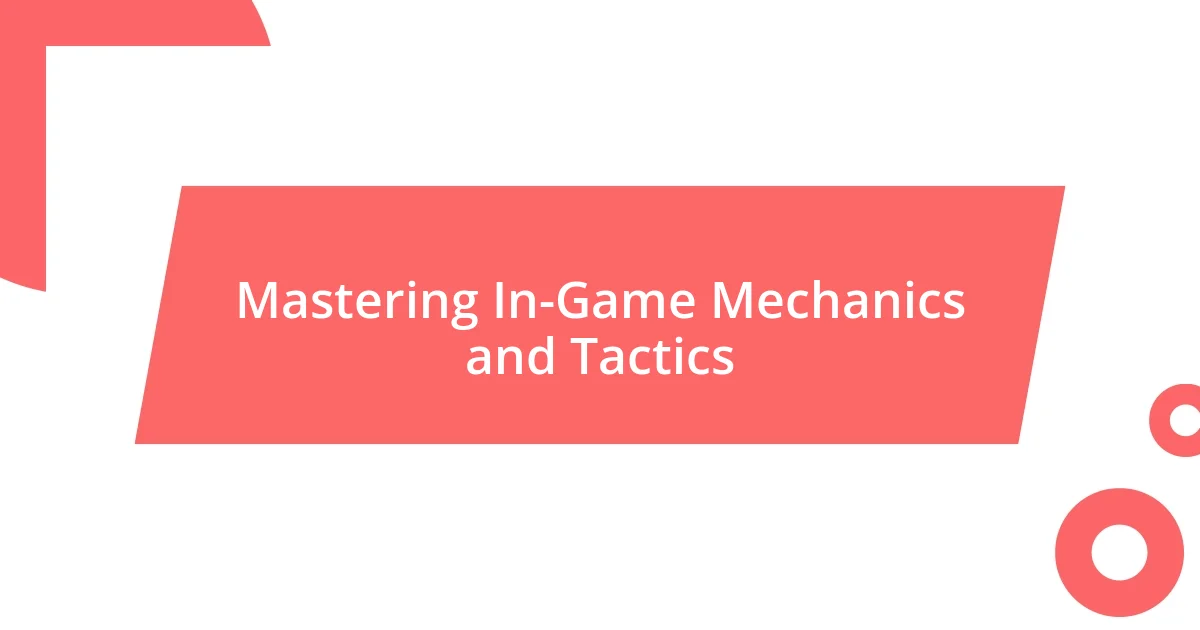
Mastering In-Game Mechanics and Tactics
Mastering in-game mechanics and tactics is crucial for becoming a proficient player in multiplayer games. I vividly remember the first time I faced a complex game mechanic in an MMORPG. The game featured a unique combo system, and I spent countless hours practicing until I could execute it flawlessly. It’s incredible how that repetitive practice turned from confusion into a seamless dance with my character, allowing me to tackle tougher opponents with confidence.
Understanding the fundamental mechanics isn’t just about knowing how to push buttons; it’s about realizing their timing and impact. In one of my favorite team-based shooters, my success hinged on understanding the map’s structure. I recall a match where I anticipated enemy movements based on their past actions, allowing me to set up ambushes. Can you imagine how empowering it felt to outsmart my opponents purely by leveraging my knowledge of the game? It’s those triumphant insights that remind me why I love gaming.
I find that breaking down complex tactics into smaller, manageable parts not only enhances my performance but also makes learning fun. Early in my gaming journey, I created a personal cheat sheet detailing each character’s abilities and how they synergized with others. Reviewing that resource before matches became a routine that sharpened my skills. I ask myself, how does this approach resonate with others? This method has not only been effective for me but can also serve as a tactic for anyone aiming to elevate their gameplay. After all, isn’t the joy of gaming found in the constant challenge of mastering the craft?
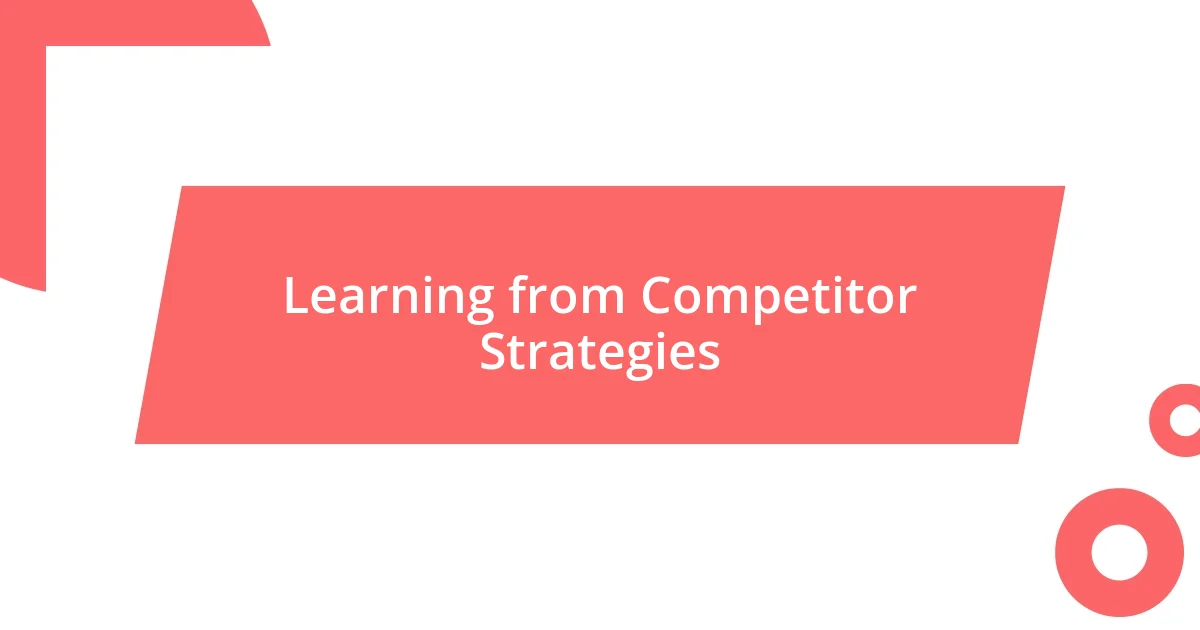
Learning from Competitor Strategies
To truly excel in multiplayer gaming, I’ve learned the importance of observing how competitors strategize. In my experiences, I’ve often found myself taking notes during matches, focusing on how others execute their plans under pressure. For instance, there was a particular game where a rival team consistently exploited map features to their advantage. This inspired me to consider how location can be a game-changer. Have you ever watched a competitor use terrain in a way that made you rethink your own approach? It’s in those moments that I realize every game is a masterclass in strategy.
I distinctly remember one match against a team known for their aggressive coordination. They’d sync their attacks in a way that left no room for our defenses to breathe. Instead of feeling disheartened, I watched closely, absorbing their techniques. Afterward, I encouraged my teammates to adapt similar communications and timing in our play. Imagine how exhilarating it felt to not only recognize their strategy but to incorporate it into our gameplay. Learning to embrace the strengths of our opponents often ignites my motivation to push my limits and evolve.
Another valuable lesson I’ve gleaned from rival strategies is the art of psychological gameplay. Once, during a particularly intense match, we faced an opponent who dominated us early on. They thrived on creating a sense of hopelessness. In hindsight, we shifted our focus toward outsmarting them instead of focusing solely on combat. By adjusting our mindsets and anticipating their moves, we turned the tides. Have you felt that rush when the underdog becomes the victor? That experience solidified my belief that understanding your competitor’s mentality can be just as important as mastering your own skills.
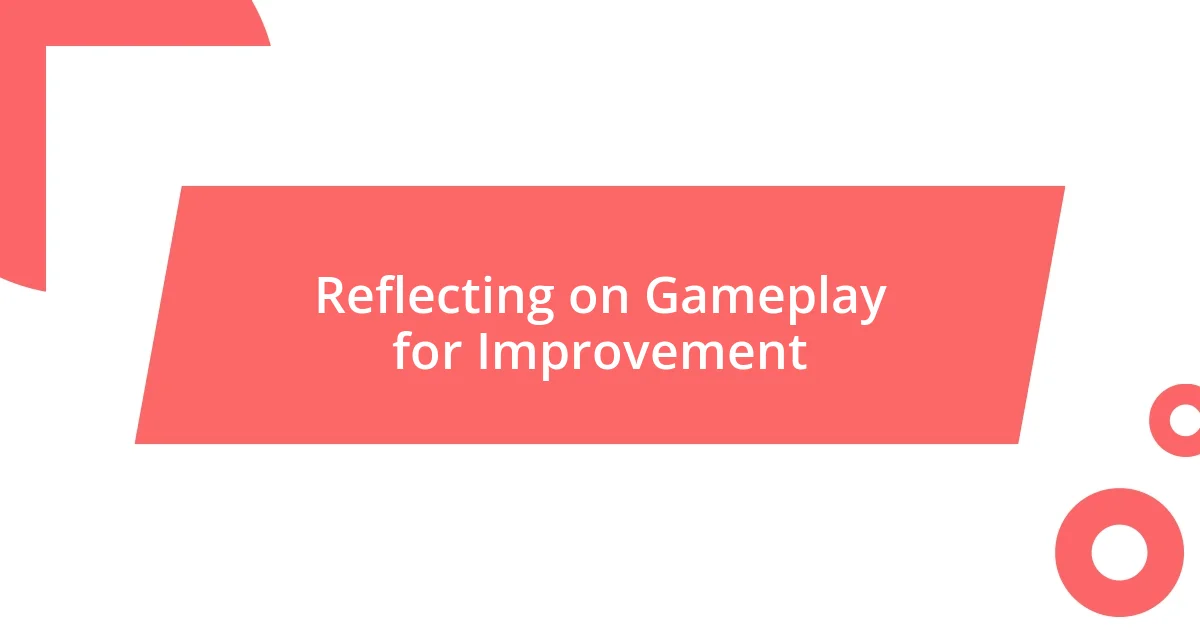
Reflecting on Gameplay for Improvement
Reflecting on gameplay is a transformative experience. After a particularly challenging match, I often find myself replaying the game in my mind, focusing on both my successes and mistakes. One time, I missed an opportunity to secure a critical objective, which haunted me for days. By analyzing the choices I made in that moment, I realized that better communication with my teammates could have changed the outcome. Have you ever felt that regret and used it as fuel to improve?
I tend to jot down specific moments that stand out during matches, especially those where I felt a mix of triumph and frustration. I recall one encounter where I panicked and made a poor decision under pressure. This wasn’t just a moment of weakness; it was a chance to learn about my emotional response in high-stake situations. Since then, I’ve made it a point to practice staying calm and collected, especially when the game gets intense. What other strategies have you explored to keep your head in the game?
Ultimately, I believe that reflecting on gameplay is all about growth. It’s easy to get caught up in the excitement and adrenaline, but taking the time to evaluate those experiences informs my journey as a player. During this reflection process, I often ask myself: What would I have done differently? This kind of self-questioning has helped me refine my gameplay while fostering a deeper understanding of my strengths and weaknesses. Each reflection not only sharpens my skills but also deepens my love for the art of gaming.






